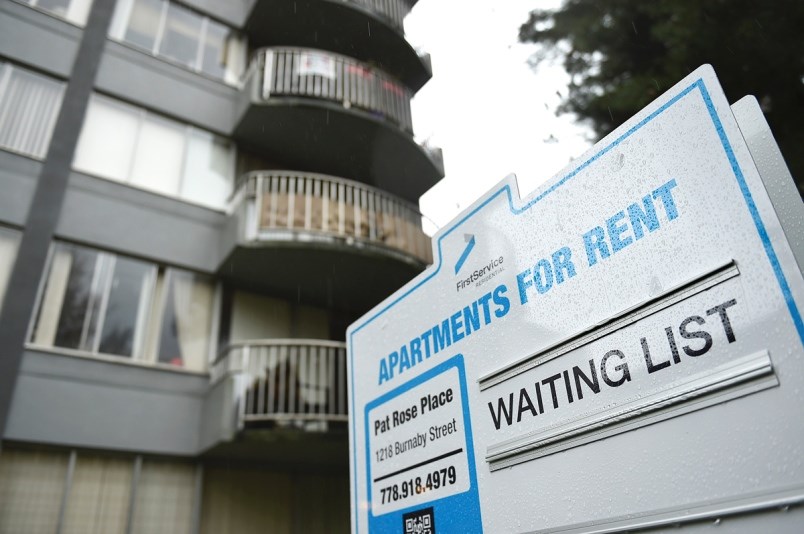While the city of Vancouver proceeds down two separate paths to attempt to shake loose housing that could otherwise be turned into long-term rentals, it is worth asking the question: Will the city’s actions make any significant difference? At this point I would say: Don’t hold your breath.
This week the province’s finance minister Mike de Jong agreed to a request/ultimatum from Mayor Gregor Robertson. De Jong will amend the Vancouver Charter to give the city the authority to apply a separate tax on, among others, the owners of those 10,000 or so condos the city says have remained vacant for a year or more.
The threat of that tax being imposed is supposed to provide an incentive to those owners to rent out their properties, rather than simply holding them as investments.
The province made it clear it wants nothing to do with the administration of this tax. And that alone could be a staffing nightmare for the city.
Victoria will however share any information it has to help the city determine whether a property is vacant or not. And, indeed, talks are taking place on an almost daily basis between municipal and provincial bureaucrats to determine just what information would be helpful — the protection of individual privacy notwithstanding.
Those bits of data could include everything from income tax returns looking for rental revenue, driver’s licences or B.C. medical cards to determine place of residence and hydro records to consider power usage for the property. And if there is a “work around” for owners, doubtless someone will find it and profit from it.
It is, says the mayor, a “work in progress,” which won’t be ready to roll out until sometime next year at the very earliest and, incidentally, well after the provincial election, allowing the province to take the credit for enabling this exercise without having to deal with the results.
But from the owner’s point of view — whether to rent that space or take the tax hit — it will all be about return on investment, rather than meeting some humanitarian notion to mitigate the housing crisis.
That is one route the city is pursuing. The other is equally fraught with problems.
That is finally taking on Airbnb and similar operators who list anything from a spare bed to a condo or a house for short-term rental.
In less than a decade, Airbnb has grown from a couple of San Franciscans renting out a loft in their apartment to help cover the rent to a globe-spanning operation worth somewhere north of $25 billion.
Airbnb’s pitch is that they help people a bit short on their rent or their mortgage to cover costs by sharing their space for a night or two now and then.
Research looking at Vancouver listings has determined that of the 4,728 local listings about 67 per cent are complete apartments or stand-alone houses. A number of owners have several properties listed.
The city has been puzzling over what to do about this phenomenon. These short-term rentals violate Vancouver zoning bylaws, but that alone has not stopped it.
Airbnb is apparently cooperating with the city in its pursuit to determine the extent of Airbnb’s impact on long-term rental facilities. But in the end, and in other jurisdictions including San Francisco, Airbnb has brought lawsuits against municipalities making even the most innocuous demands to measure the extent of their listings.
While the city has engaged a consultant to try and determine the number of units Airbnb and other smaller outfits are listing in the city, the mayor’s office admits that proving an apartment or a house is being used for short-term rental is both difficult and time consuming.
What we have, and the mayor’s office is well aware of this too, is a municipal regulatory structure that is decades out of date. Back in the days of Expo 86 when people were being booted from rooming houses to make way for tourists, it was at a scale and degree of transparency where the city could effectively act.
Now, in a world of social media with a global reach and international currency transfers where houses are being bought and sold like stocks and bonds, it is no wonder the city finds itself trying to catch up.
@allengarr



